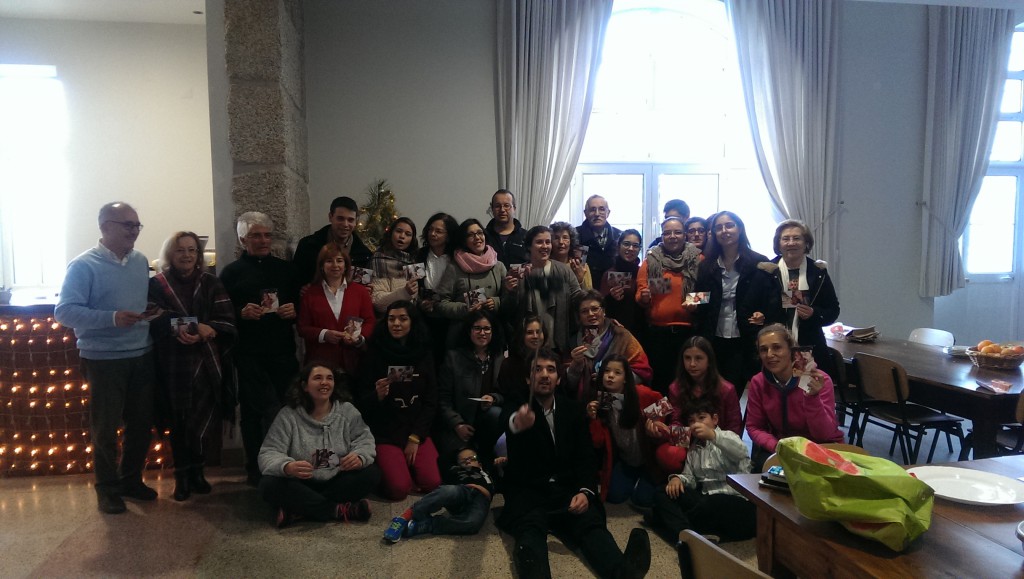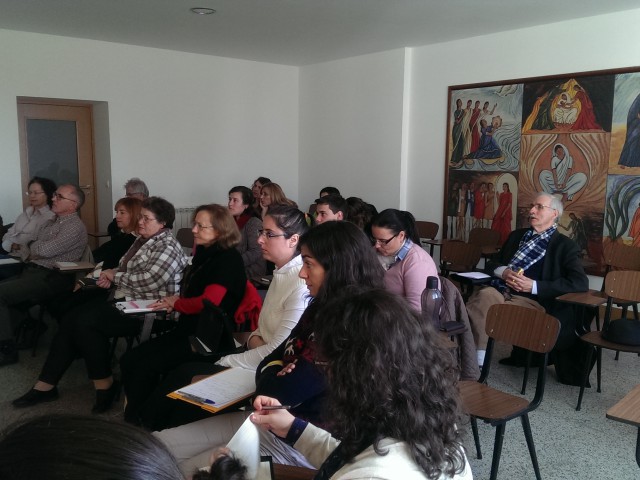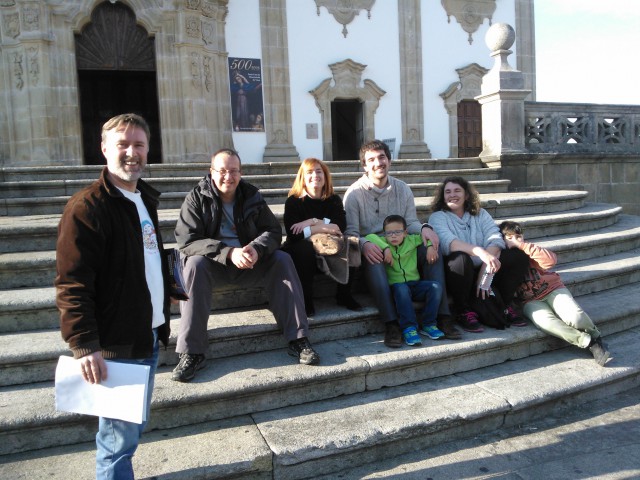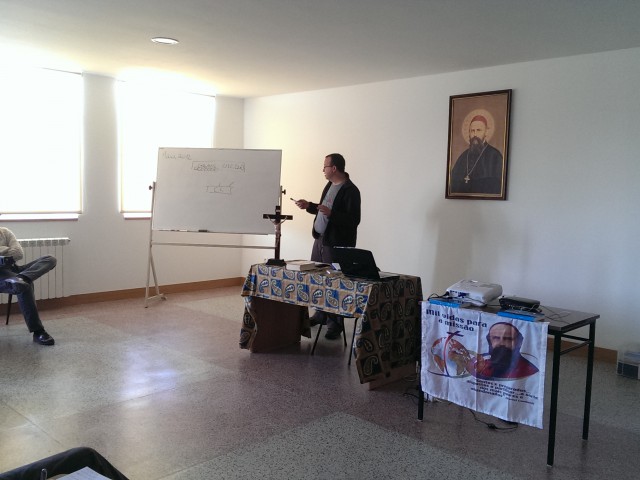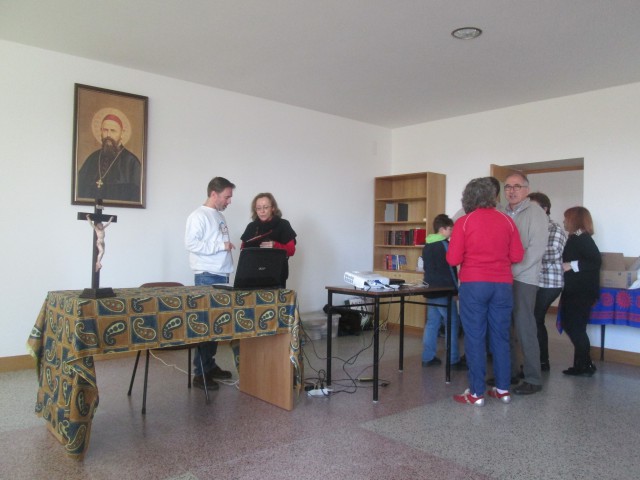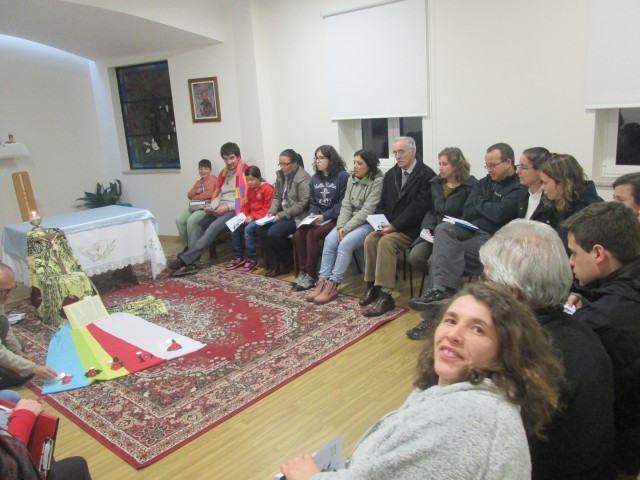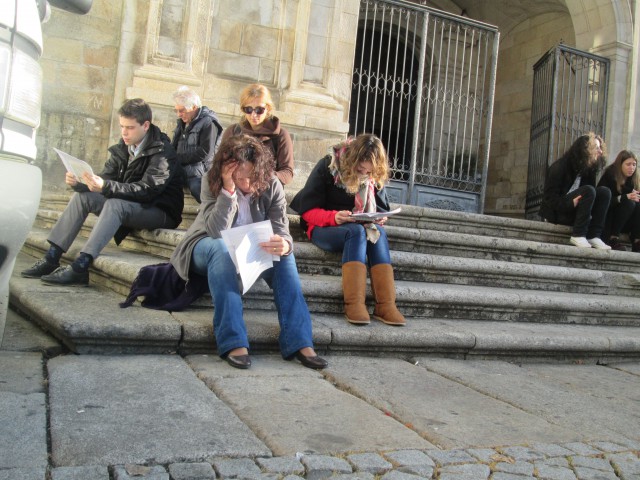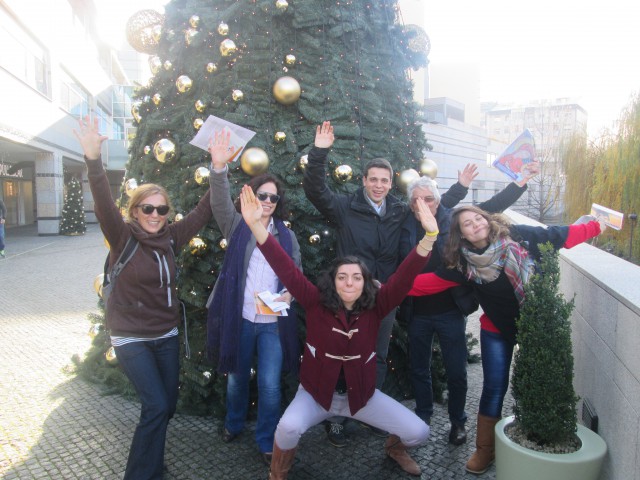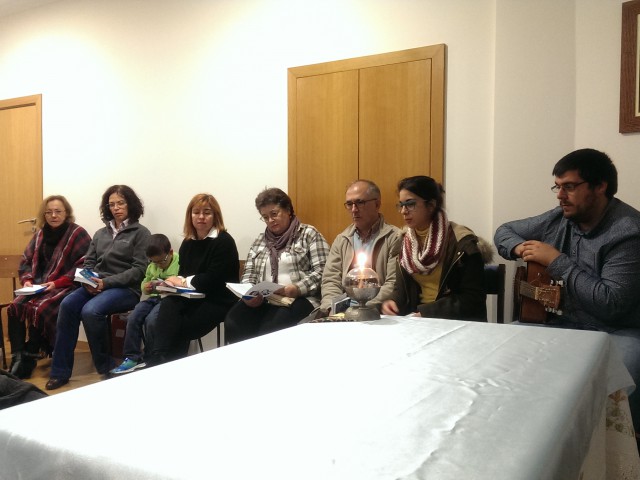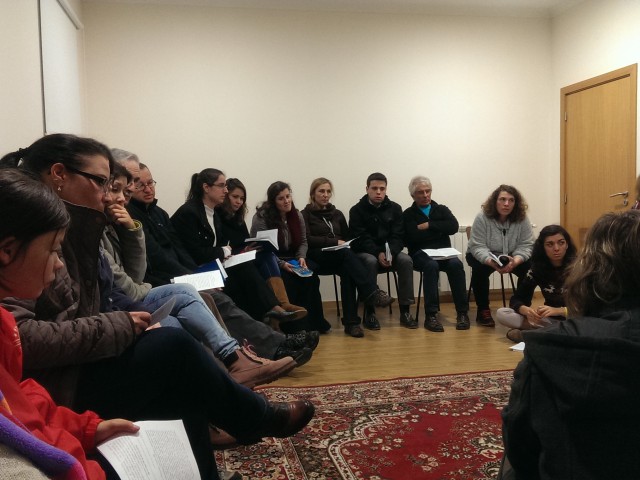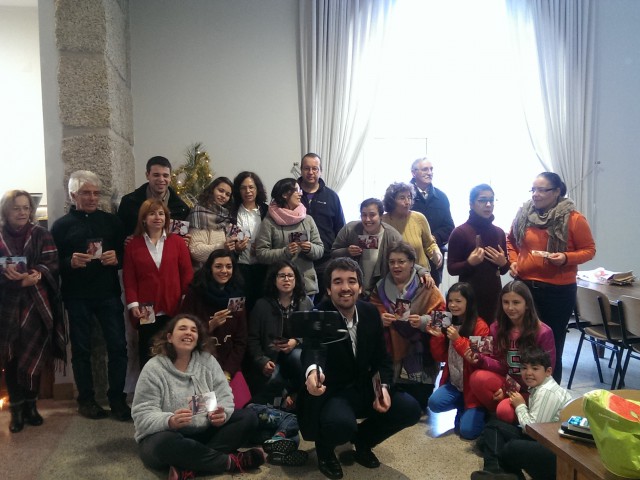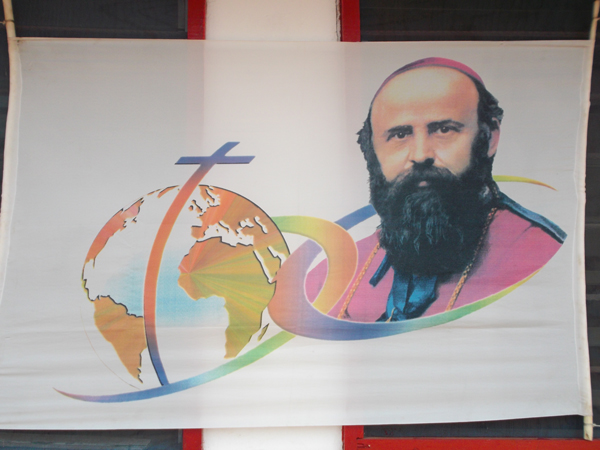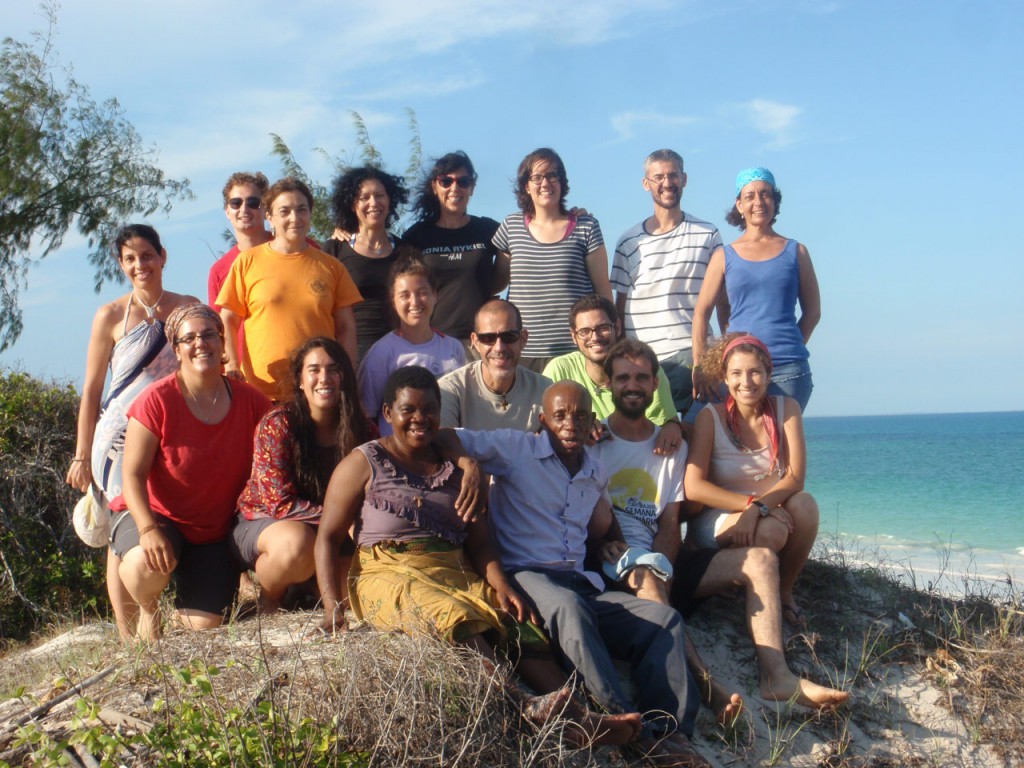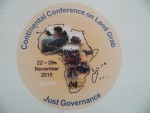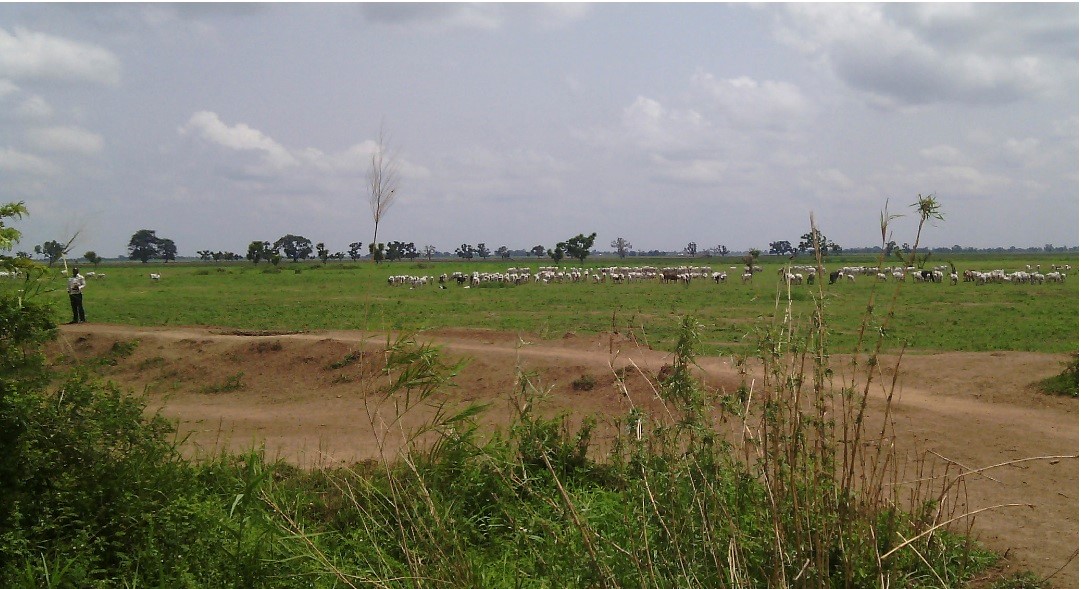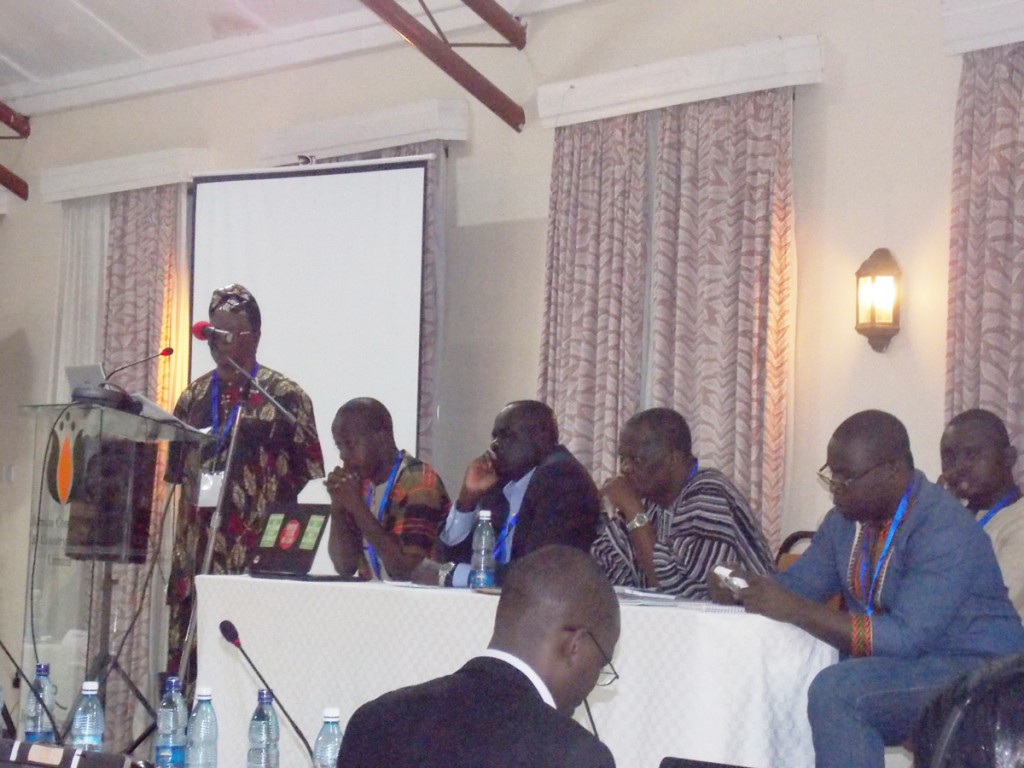Before Christmas, I was invited by the CLM from Portugal to share with them their Christmas meeting.
This is an important meeting for the CLM group, where candidates and CLM meet to get formation, pray and celebrate Christmas together.
We met in the house of the MCCJ in Viseu. It was a weekend full of many important moments.
On arrival at Lisbon, they were waiting for me and we could dine in Pedro´s home before travel by car to Viseu. There we went slowly reaching the different participants from all places in Portugal. A moment of gathering with the CLM and meet all those who are preparing and discerning their missionary vocation.
We began with Mass in the morning where we also find Comboni fathers, brothers and sisters. During the morning, we talked with the group about the history and organization of CLM internationally. From the group’s questions we were entering in part of our history, of the decisions we have been taking to grow as a family and especially of how we have been doing reality, through the commitment and dedication of many, this missionary vocation.
The second part of the morning we used to enter into the commitments of Maia, see how we are trying to carry out and explain the support that from the Central Committee we tried to give to all groups to enable the challenges agreed.
The afternoon was spent touring the city of Viseu, giving hugs, thinking and praying about the year of mercy, doing missionary animation and talking to people about the challenge of mercy throw us this year by Pope Francisco. All this in an entertaining Gymkhana. All these experiences were able to share in the evening prayer.
We spent the night sharing the testimony of my beautiful years of Mozambique. A time to talk about vocation and missionary service.
On Sunday, we worked on practical aspects of the next CLM European assembly of this summer to be held in Portugal. A nice welcome challenge for the group of Portuguese candidates and CLM that will host the 5 European countries that give us appointment in August. Also a time to speak of missionary animation and finding the funds needed to carry out the mission.
At the end, the Eucharist served as conclusion and thanksgiving for this beautiful time.
I said nothing of the many Christmas sweets who joined us for the weekend, and the numerous conversations we were able to keep, a great part of the meeting. Of course, I encourage those who have doubts, touches off the couch and find which path to which the Lord calls us. In Portuguese CLM Group, you will find a good place to reflect, discern and be accompanied on this missionary service.
Christmas Greetings




